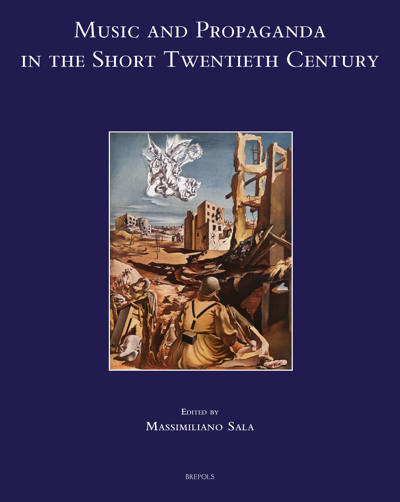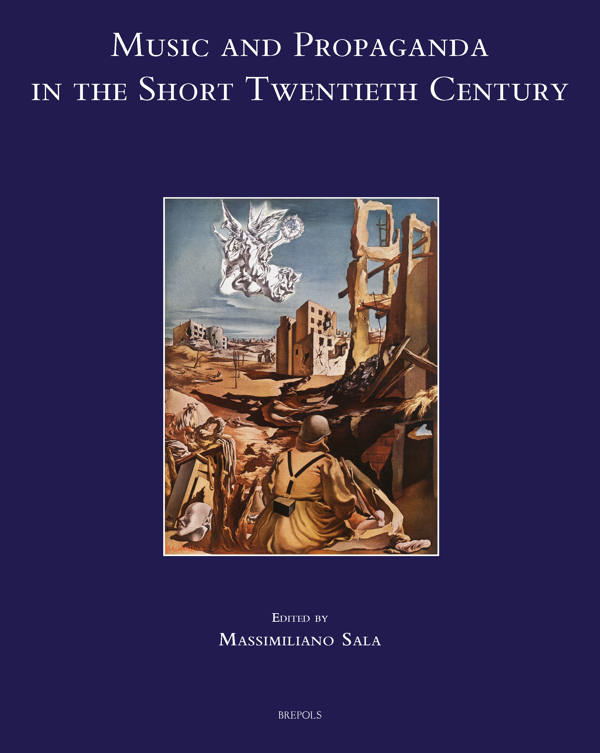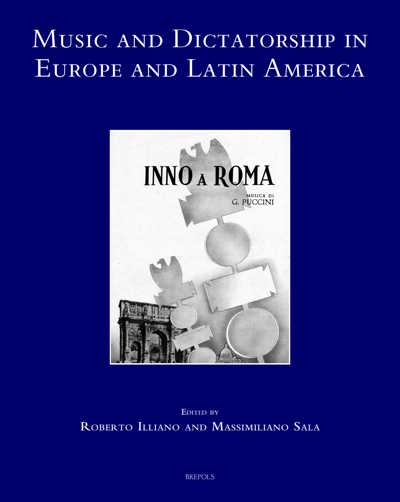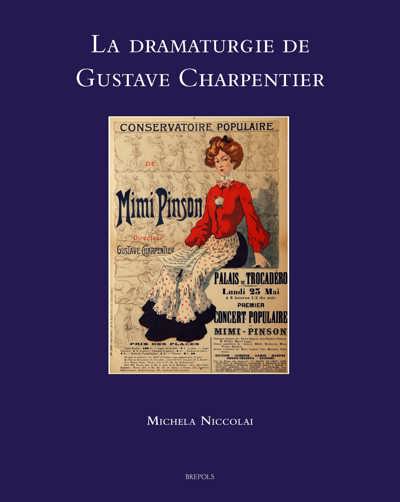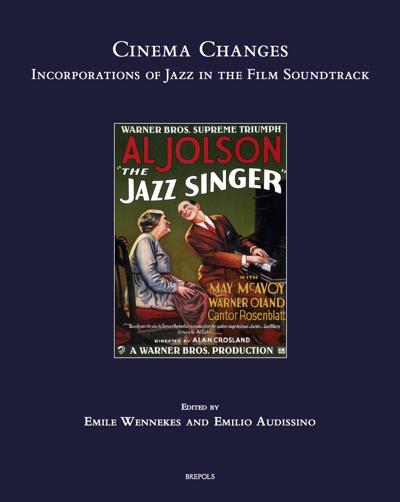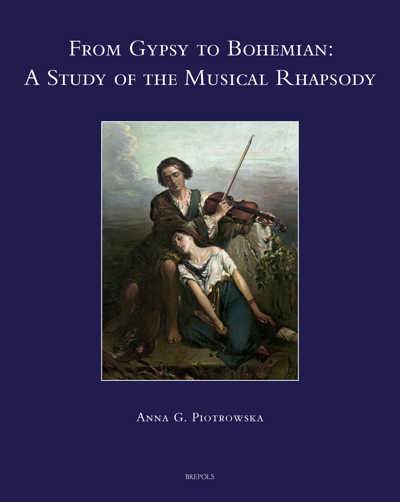
Music and Propaganda in the Short Twentieth Century
Massimiliano Sala (ed)
- Pages: 471 p.
- Size:210 x 270 mm
- Illustrations:50 b/w
- Language(s):English, Spanish, Italian
- Publication Year:2014
- € 130,00 EXCL. VAT RETAIL PRICE
- ISBN: 978-2-503-55246-0
- Hardback
- Available
This volume investigates the relationships between music and propaganda in the twentieth century. Music can be utilised to attribute and ascribe multivalent meanings. Due to its great evocative power it has often been directly exploited by regimes and governments. In what ways does music convey the messages of propaganda? Which are the political and economical implications behind musical propaganda? Much has been written about the relationship between music and propaganda during the two world wars, but the post-war dimensions of the topic also require investigation.
The authors featured in this volume are: M. I. Cabrera García, P. Christiansen, P. F. de Castro, L. Duraković, F. J. Fernández Vicedo, M. Fornaro Bordolli, D. Gangale, G. Gan Quesada, L. J. Hansen, E. Levi, S. Majer-Bobetko, H. Marinho, L. Martin-Chevalier, M. B. Martínez del Fresno, V. Mikić, P. Ordóñez Eslava, J. J. Pastor Comín, B. Pérez Castillo, G. Pérez Zalduondo, V. Radoman, C. Schutte, L. R. Semmes, H. Šišková, A. Stimie, W. Studdert, A. Tuchowski, H. Vandervlist, B. Vega Pichaco, L. Velasco Pufleau.
Preface
Overview:
Luis Velasco Pufleau, Reflexions sur les rapports entre musique et propaganda
Western Europe:
Erik Levi, Appeasing Hitler? Anglo-German Music Relations, 1933-1939 – Will Studdert, ‘Happy Hour in the Afternoon’ and ‘Station Debunk’: Two Nazi Jazz Projects of World War II – Laurie Ruth Semmes, Frank Capra’s Job in Germany: Evoking Cautious Suspicion through German Musical Reassurance – Lindsay J. Hansen, Singing the Right Message: Song and Controversy in East Germany
Eastern Europe:
Andrzej Tuchowski, The Totalitarian Rhetoric of ‘Struggle’: March Rhythms in the Service of Propaganda and Ideological Indoctrination in Poland under Stalinist Dictatorship (1949-1956) – Hana Šišková, Music as a Carrier of Ideas: The Example of Postwar Polish Music – Louisa Martin-Chevalier, Celebrating the October Revolution in Music: A Political Event? – Sanja Majer-Bobetko, Music Historiography and Propaganda in the First Half of the 20th Century: The Croatian Example – Lada Durakovi, Musica e propaganda politica: il ruolo e la retorica della stampa quotidiana nella vita musicale di Pola e dell’Istria nel periodo tra le due guerre mondiali (1926-1943) – Valentina Radoman, Music and Propaganda after World War II: Example of the Socialist Federal Republic of Yugoslavia – Vesna Mikić, Mass Song as a Key Product of Yugoslav Music Propaganda
Southern Europe:
Daniela Gangale, Propaganda di sinistra: l’esperienza di ‘Cantacronache’ (1958-1962) – Paulo Ferreira De Castro, « Aber gewisse Dinge stehen gar nicht drin » (« But Certain Things Aren't at All There »): On a German Conductor, a Portuguese Symphony, and the Elephant in the Room – Helena Marinho, Composing for Dance during the Estado Novo Dictatorship: A Case Study – Gemma Pérez Zalduondo & María Isabel Cabrera García, Voices, Strategies and Practices of Propaganda: Music and Artistic Culture at the Service of the State during Francoism – Juan José Pastor Comín, De Don Quijote a Dulcinea: Dimensión política de las adaptaciones musicales cervantinas en el primer franquismo (1939-1950) – Beatriz Martínez del Fresno, Las armas de Terpsícore en la recuperación diplomática del franquismo. Coros y Danzas de España en la Argentina de Perón (1948) – Francisco José Fernández Vicedo, La música española en los años cincuenta: el Premio de Composición ‘Samuel Ros’ como reflejo de las políticas del regimen franquista y la transición hacia las nuevas estéticas compositivas – Belén Pérez Castillo, ‘Problematized’ Music. Notes on the Reception of ‘Avant-garde’ Symphonic Music during the Franco Years (1952-1969) – Germán Gan Quesada, To Win Freedom ... Musical Composition and Political Commitment in Spain during the Last Years of Francoism (1969-1975) – Pedro Ordóñez Eslava, Mundo y formas del cante flamenco cincuenta años después: identidades del flamenco en el último franquismo
South Africa:
Charla Schutte, « Lieder sind Brüder der Revolution »: An Ideology-Critical Approach to the Use of Song as a Vehicle for Propaganda – Annemie Stimie, Songs, Singing and Spaces in South Africa: Afrikaans Folk Songs in Nationalist Publications
Overseas:
Harry Vandervlist, « Shostakovich, Jump through the Window! »: Dmitry Shostakovich and the Opening of the Cold War Propaganda Battle in Time and Life Magazines – Paul Christiansen, « Finish It- Whatever It Takes »: Musical Propaganda in Political Ads from Bush’s 2004 U.S. Presidential Campaign – Belén Vega Pichaco, Re-(nova)volu-tion: The Members of the Grupo de Renovación Musical before the Cuban Revolution and afterwards – Marita Fornaro Bordolli, Music and Propaganda: Contexts and Repertoires in the Second Half of the 20th Century in Uruguay
Biographies
Index Of Names
